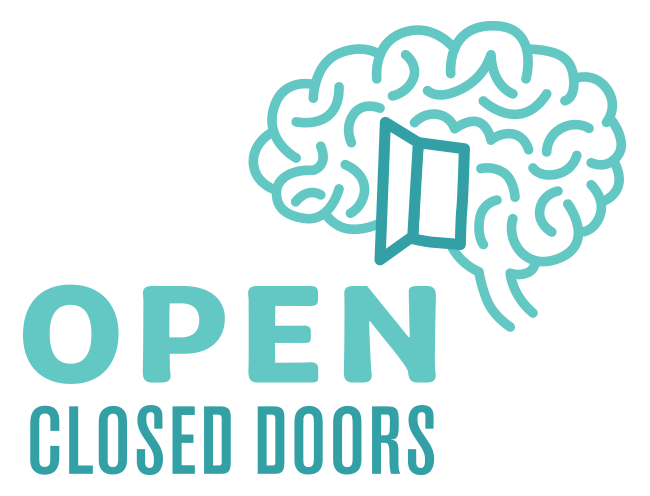Download Full Document Here
NEW CHARITY BRINGS GROUNDBREAKING OCD TREATMENT TO AOTEAROA
Treatment will transform the lives of thousands living with OCD
FOR IMMEDIATE RELEASE 19 August 2025
A new charity dedicated to supporting Kiwis with OCD is bringing a groundbreaking intensive treatment programme to New Zealand where limited specialist treatment for the disorder is available.
Open Closed Doors, a charity founded this year by a collective of leading clinicians, health advocates and whānau of those with OCD, is partnering with the internationally acclaimed Bergen Four Day OCD Treatment (B4DT) programme – a proven intensive “circuit-breaker” treatment developed in Norway.
It is estimated Obsessive Compulsive Disorder, commonly known as OCD, affects up to 100,000 New Zealanders. However, only a fraction of these people are diagnosed and even less can access effective treatment options, says Clinical Psychologist and Senior Lecturer at the University of Auckland, Dr Marthinus Bekker.
Global data estimates only four out of every 10 people with OCD will access treatment. In New Zealand, with its very pressured health system, OCD treatment is typically only delivered by a handful of specialised clinicians meaning many people struggle to access support through the public system and private treatment comes with a financial burden.
Treatment offers hope for thousands
The Bergen programme is globally considered one of the most successful intervention models for treating severe OCD with a near 70 percent success rate in real world clinics, delivered in a four-day intensive group setting.
Studies in community clinics have shown 90 percent of clients making significant improvements and 68 percent of patients being in remission 12-months after participating in the treatment, with most still being well (69%) when followed up at four years.
“It not only brings hope to thousands of New Zealanders and their families whose lives are affected by OCD, but it also has the potential to reduce the burden on our mental health system by providing treatment in a much more efficient and accessible way,” says Dr Bekker.
“While many may use the phrase ‘I’m a little bit OCD’ to describe liking things to be tidy or being organised, the reality for many who struggle with OCD is not being able to leave the house easily, washing hands until they are raw, or spending hours every day battling the obsessive thoughts and compulsions they may feel little control over.”
Alarming gap in local OCD care
A study published in the Journal of the Royal Society of New Zealand last year found the country’s mental health system is failing to adequately identify, diagnose, and treat OCD, with particular inequities affecting Māori, Pacific, and Asian communities.
The study cited an urgent need for improved training for healthcare providers, specialised OCD treatment services, and systemic barriers preventing equitable access to care be addressed. In New Zealand, there is no national strategy for OCD or an advisory group.
“While New Zealand has excellent mental health professionals, there’s been a significant gap when it comes to delivering OCD-specific treatments, particularly for those with severe OCD” says Sue Brewster, Open Closed Doors co-founder and chair.
Brewster, who heads the Auckland Medical Research Foundation, says many cases are misdiagnosed or mistreated, and severe OCD patients are often discharged by the public healthcare system that lacks the resources and knowledge to deal with complex cases.
“With Bergen’s evidence-based intensive treatment approach we’re building a sustainable foundation for treating severe OCD that will serve our communities for generations,” she says.
How it works
The B4DT programme was created by Gerd Kvale and Bjarne Hansen, who were named among Time Magazine’s 50 most influential people in healthcare in 2018.
The programme revolutionises treatment by providing a four-day intensive programme with individual treatment but in a group setting. Each patient has their own therapist to ensure intensive therapeutic work on an individual basis, while the group setting provides psychoeducation, progress discussions, and troubleshooting.
“This format is fast, can act as a circuit breaker for those stuck in their home settings, and is much more accessible for those who live in remote areas or regions underserved by appropriate services,” says Dr Bekker.
This approach is a radical departure from traditional weekly therapy sessions that can stretch over months or years, often with limited success.
Training for NZ specialists
This month, five New Zealand psychologists will travel to Singapore to do two weeks of intensive training in the B4DT method.
In 2026 Open Closed Doors is planning to launch B4DT in New Zealand, starting with two four-day treatment programmes for people with severe OCD. The first two programmes will also provide opportunities to train more local clinicians to help them be more confident and knowledgeable when dealing with OCD patients and their treatment.
Norwegian charity the Kavli Trust is supporting the global B4DT rollout and is providing funding for the New Zealand clinical team’s training in Singapore. Open Closed Doors is currently fundraising for up to $250,000 more to set up a sustainable charity and to run next year’s treatment programmes.
Brewster believes by combining international expertise with local knowledge, Open Closed Doors is pioneering a model that could transform mental healthcare delivery in Aotearoa.
“It’s a paradigm shift in how we approach severe OCD. It is treatable with appropriate interventions. Some of these treatments are short and very effective. We’re here to make sure New Zealanders and their whānau have access to them.”
For more information about Open Closed Doors contact:
Megan Jones (Co-founder)
Ph: 021 462660
Sue Brewster (Co-founder)
Ph: 027 569 7777
